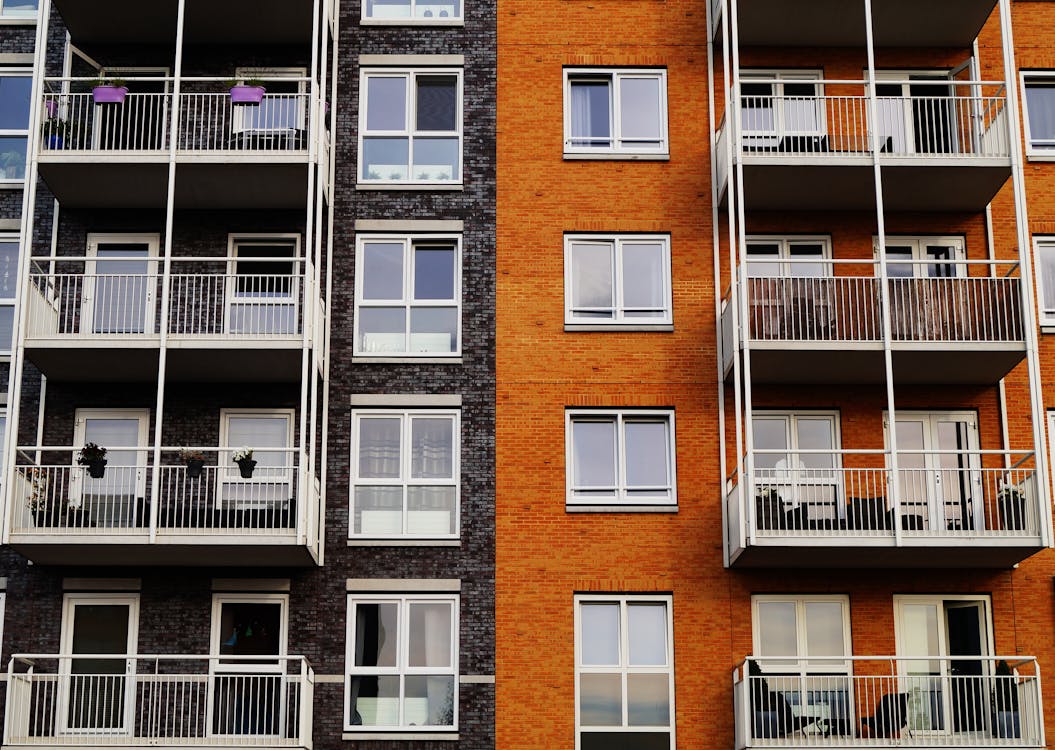Condo vs Apartment: What Should You Choose?
It's important to consider your housing preference's long-term implications, whether you rent or buy. If you're in this circumstance, you're probably wondering how much it will cost and what you'll get in exchange for that payment.
This brings us to our next inquiry: do you prefer a condo or an apartment? It's common for first-time purchasers to choose condos or apartments as their first homes. But what sets a condominium apart from a regular apartment?
Condo vs. Apartment: What's the Difference?
It's easy to confuse condos with apartments because both housing types typically contain multiple units and communal facilities. The issue boils down to who gets to own what, which has implications for both tenants and buyers.
Condominiums, or "condos," are a form of private housing owned by a single person who also serves as the building's or community's landlord. Each unit has a well-defined layout and offers residents various conveniences common to apartment complexes, such as swimming pools, gyms, and barbecue areas.
Being the landlord, the owner is interested in improving the property and providing more facilities. There's also the possibility that the owner previously resided in the flat and left some personal touches behind before renting it out. The owner's status as the landlord may also make them more flexible concerning some lease provisions, such as allowing you to improve the property.

On the other hand, apartments are typically located in multi-unit buildings maintained by a third-party company and have a community feel to them. The apartments in an apartment building typically all look, feel, and function the same.
Let's compare and contrast the two in more detail:
Ownership
Condominiums are real estate that you purchase. In particular, you are buying the inside of your house (together with any adjoining sections to which you have exclusive use, like a balcony), and you are interested in the "common elements." When you live in an apartment, you're merely a renter, not the landlord.
Responsibility
Responsibility When living in an apartment, you often have no maintenance responsibilities besides what's in your lease.
Living in an apartment often means no maintenance responsibilities besides what's in your lease.
Size
Condos are typically (but not always) larger than apartments.
Governing Rules
The Condo or Owner Association in a condo complex sets the regulations for residents, while the landlord or property management firm in an apartment community does.
Things to Consider Before Deciding
While deciding between buying a condo and renting an apartment, it's vital to think about the following:
Cost
Pricing for an apartment is simple. The first month's rent, security deposit, and possibly the last month's rent are all expected at the start of a lease. After that, you'll be responsible for making regular payments to the landlord for the duration of your lease.
Buying a condo requires more labor and financial resources than a single-family home. A house inspection, down payment, and mortgage closing charges are all things you'll have to pay for upfront. As a condo owner, you should expect to pay monthly HOA dues in addition to your mortgage.
Duration of Stay
Long-term condo ownership can eventually bring monthly payments down to a level comparable to renting. It's easier to uproot and start over when renting, financially speaking. Monthly or annual leases are acceptable options for tenants.
When you're ready to relocate, leaving an apartment is far simpler and less expensive than selling a condo.
Maintenance
If something breaks in your rented flat, such as an air conditioner or faucet, it is usually the landlord's responsibility to fix it. On the other hand, condo owners must pay for maintenance and repairs out of their own pockets.
Amenities
Condominiums and apartment complexes share similar layouts and features because they are either high-rise or low-rise buildings with only a few floors. When settling on a neighborhood, it's crucial to evaluate the various options based on the features that are most important to you, like a doorkeeper, a gym, a pool, or a green space.
Location
Regardless of the type of home you're considering, its location is crucial. The small structural footprints of condo and apartment buildings make them more common in urban regions and highly populated suburbs than in rural locations. Locations near businesses, parks, restaurants, and other amenities are common for both structures.

Landlord
You may develop a closer relationship with your landlord if you lease a condo from the owner instead of going via a third-party management company. Yet, a condo owner is only sometimes as equipped to handle maintenance issues as a professional management firm.
HOA Rules
Condominiums have fewer restrictions than apartments, yet they still have their share of requirements to follow. Common areas, pets, and outside decorations are all topics that are typically addressed in the "house rules" that come standard in both condo and apartment communities.
Landlords also have the right to restrict tenants' ability to alter the inside of their apartments, including hanging artwork and painting walls. Condominium owners, on the other hand, are usually free to do anything they like to the interior of their dwelling.
Possible Investments
Your investment property should be future-proof when choosing between a condominium and an apartment. If you ever manage to purchase the condo you are currently renting, many options are available.
Offer it to your child as a second house if they wish to be closer to their job, for instance. A first-time investor, such as a young professional, can live in the property or lease it out to others to generate rental income.
Pros and Cons of Renting an Apartment or Buying a Condo
Next, we'll weigh the pros and cons of condo living against apartment living.

Apartment Living
Pros
-
Less Cash Outlay
-
Easier to Move in and Out
-
Outsourced Maintenance
-
Emergency Service
-
No HOA Fees
-
Single Entity in Charge of Rules
-
Landlords normally are responsible for the maintenance
Cons
-
No ownership
Condo Living
Pros
-
Building Ownership
-
Can Change Design to Meet Needs
-
Size (though not always)
Cons
-
Expensive Cash Outlay
-
Responsible for All Maintenance
-
Harder to Move Out Of
-
Very difficult to Switch Units
-
Subject to HOA Fees and Rules
-
Expensive Buying and Selling Fees
Which is More Practical, Buying or Renting?
Everyone has different needs when choosing a place to call home, so there is no universal answer. Apartment renting is the most common housing choice for people who value mobility and independence over commitment and responsibility. Condos are ideal for first-time homebuyers and savers who wish to make a long-term investment.
You should decide between buying a condo and renting an apartment after carefully considering the short-term and long-term needs. When you have all the information, making poor choices is practically impossible.




